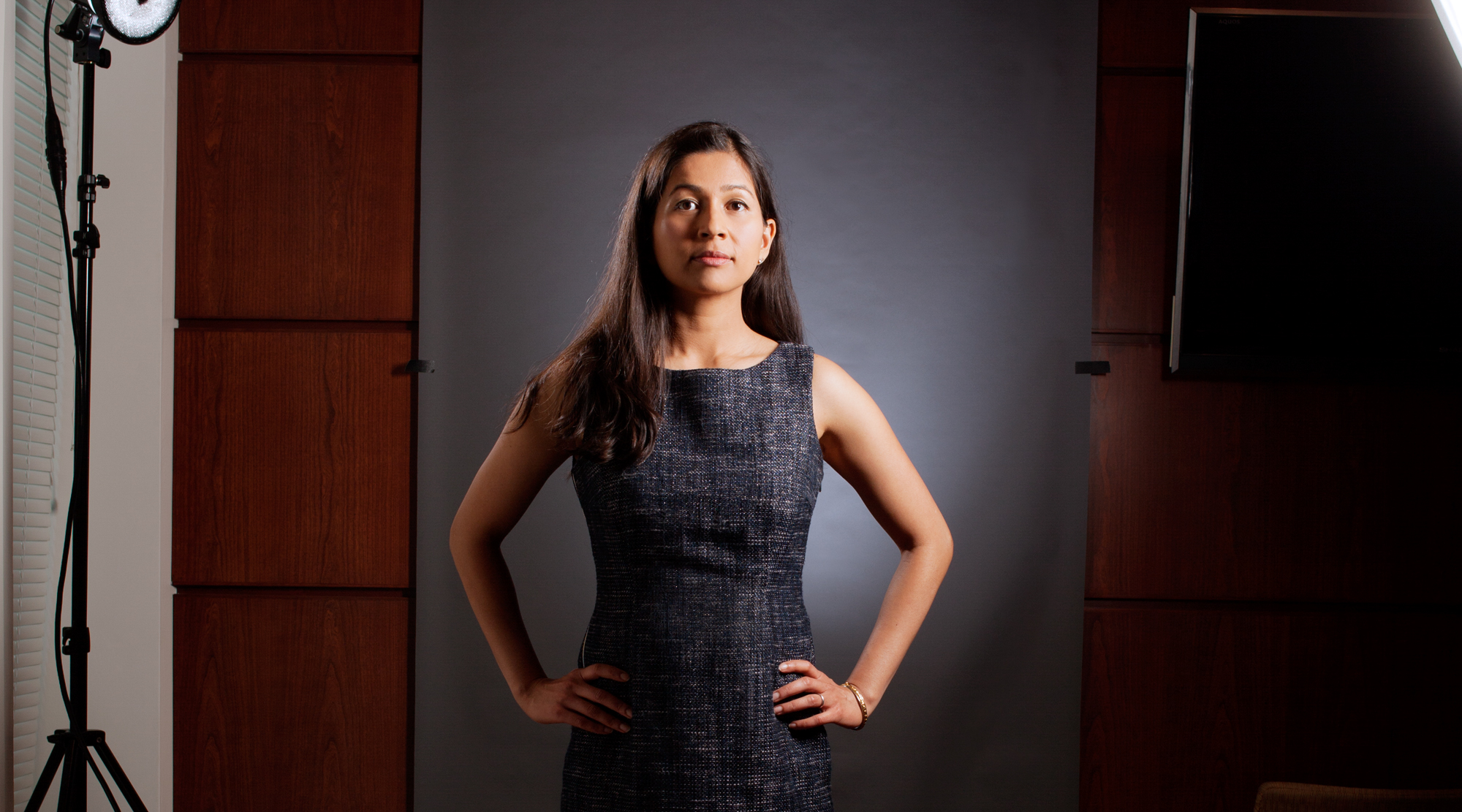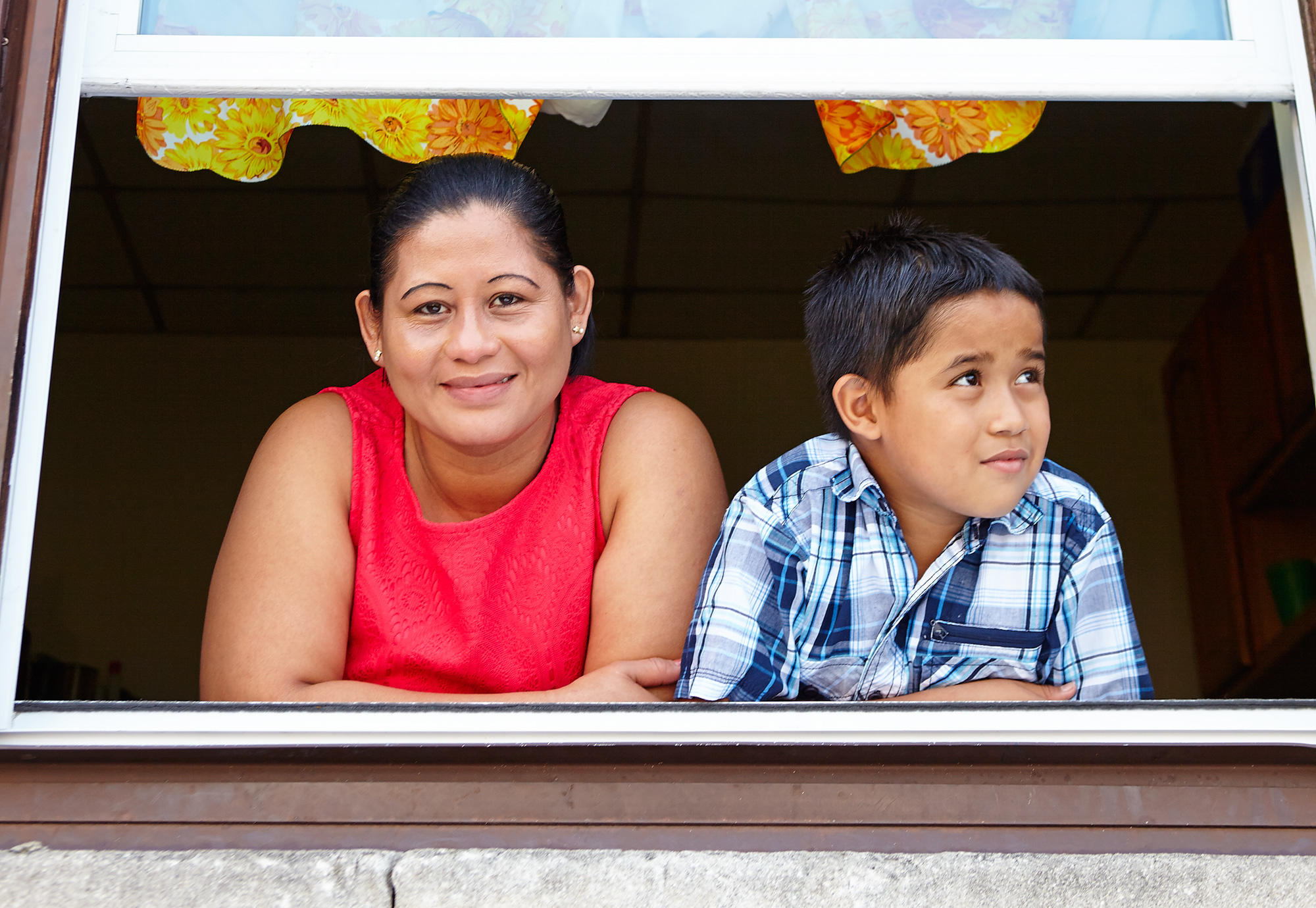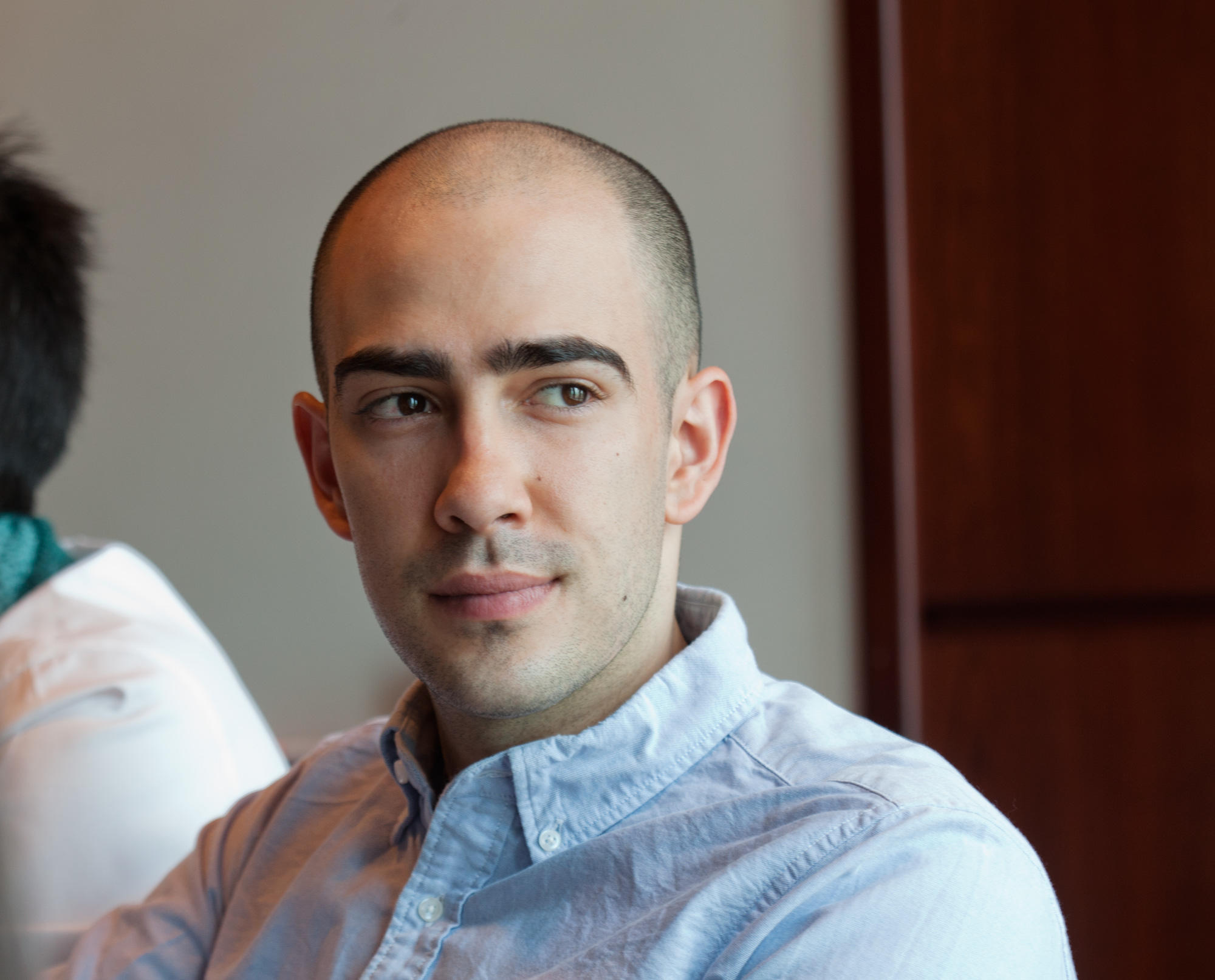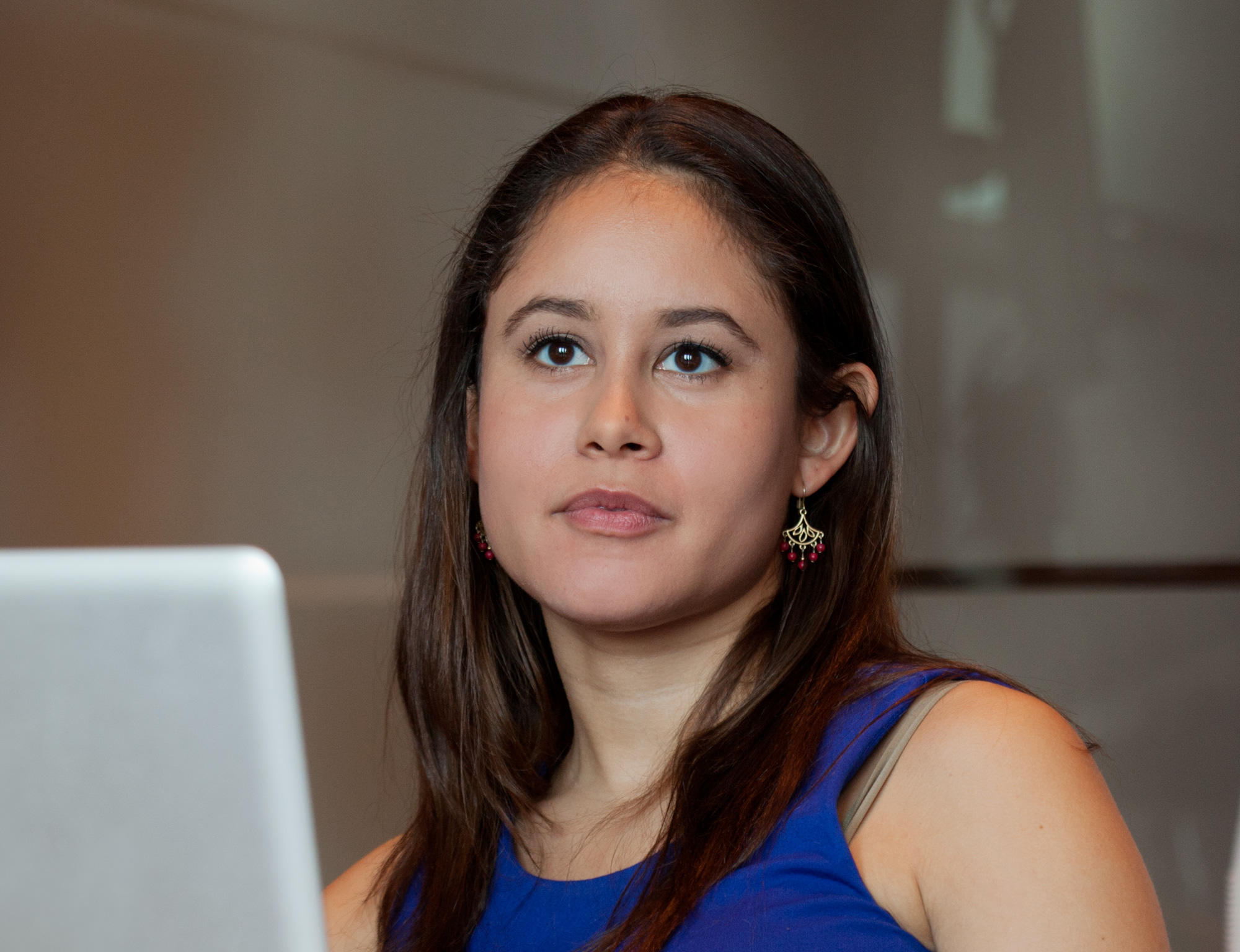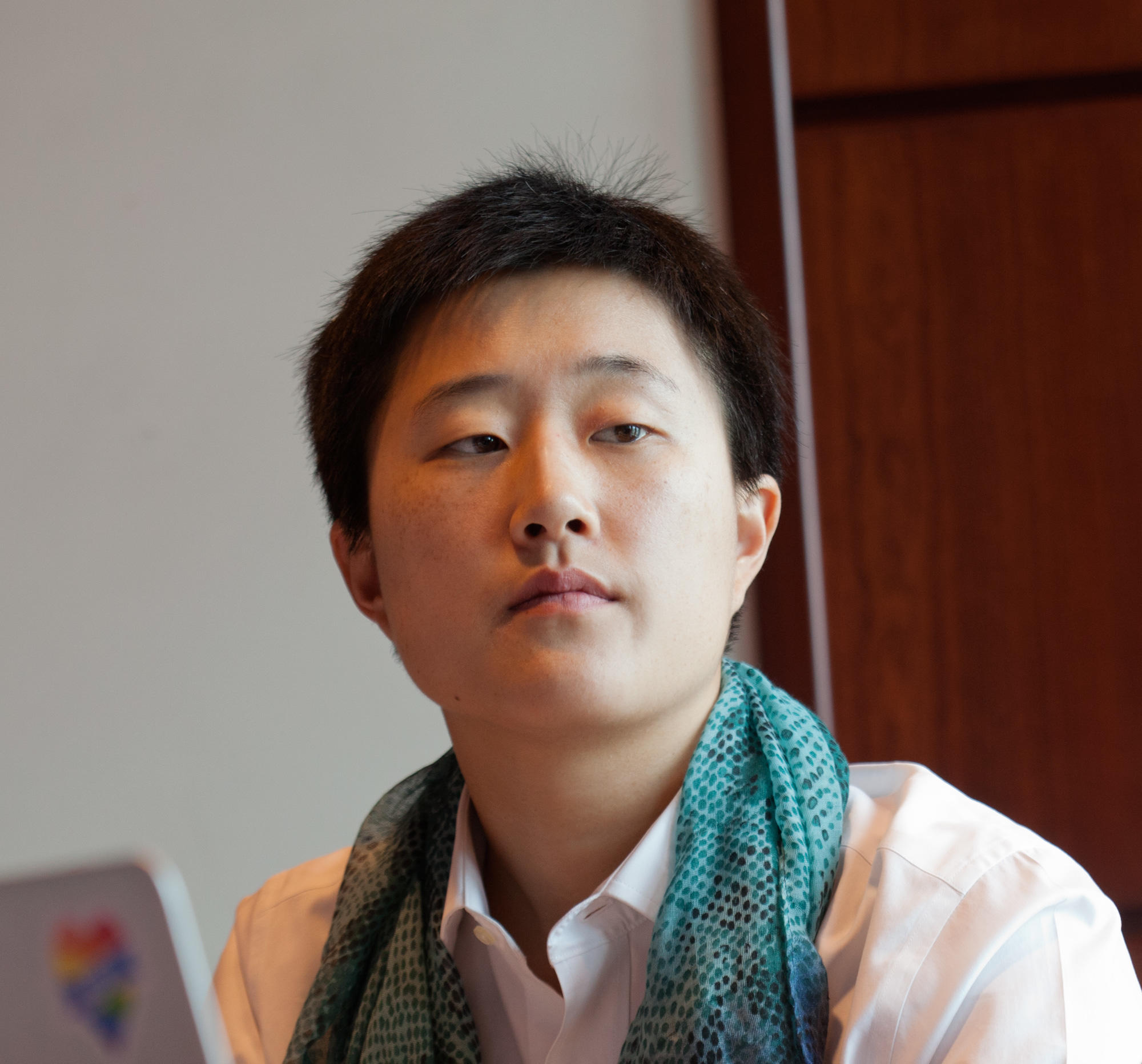Through the eyes of the young mother, the scene was both frightening and bewildering. She was sitting in a room at the immigration detention center in Dilley, Texas, holding a fussy baby in her lap and trying not to cry. On the video screen, from a thousand miles away in Denver, the judge was speaking in a language she didn’t understand. The woman knew nothing about the American legal system. She couldn’t afford a lawyer, and no one had told her what she was supposed to say or do. Her voice trembling, she answered a few questions in Spanish and then gently rocked the baby to sleep while everyone else talked. She never realized that she had just failed to present her case or even argue in her own defense in a court of law.
Kafka’s novel The Trial tells the story of a man prosecuted by authorities he cannot challenge, for crimes unknown. His was a work of fiction, but according to Columbia law professor Elora Mukherjee, a similar scene is acted out in the United States every day, where people of all ages who enter the country and apply for political asylum are routinely incarcerated for months or even years and then expected to navigate the complexities of the immigration system without a lawyer.
More than four hundred thousand people cycle through US Immigration and Customs Enforcement (ICE) annually, and last year, 41,920 of those immigrants sought asylum. Some of them are fleeing terrorist groups or repressive political regimes; others may be trying to escape societies that punish homosexuality or those that enforce harmful cultural practices such as female genital mutilation. Since 2012, increasing numbers of women and children, including unaccompanied minors, have crossed our southern borders to avoid gang violence, extortion, and execution in Central America.
“International treaties require that refugees be treated humanely and without penalty, yet many of the asylum seekers who come to the US are immediately detained,” says Mukherjee. They have no right to free, government-appointed counsel, and most of them cannot pay for lawyers. Applicants must file the appropriate paperwork and prove that their lives are in danger, but because they have no knowledge of American immigration law and speak little English, they invariably fail to do this. In fact, a study from Syracuse University shows that women with children who seek asylum without representation rarely prevail. Of 26,342 cases tracked, 98.5 percent of families without representation were deported. The consequences can be grave. There are multiple reports of asylum seekers, including children, who have been returned to their countries of origin only to be murdered by the people they were trying to escape.
Asylum cases, then, can be a matter of life and death. But asylum seekers have a new ally in their camp: over the last eighteen months, a growing number of refugees in US detention centers have won their freedom thanks to the efforts of the small group of Columbia law students who staff the University’s Immigrants’ Rights Clinic. Founded by Mukherjee, the clinic offers pro bono legal assistance to vulnerable people caught in the legal system. Clients have included women fleeing sexual assault and murder threats, Christians targeted by Boko Haram and al-Shabaab, and unaccompanied children as young as eleven escaping gang violence.
To understand the work of the law clinic and the forces that led to its creation, it’s helpful to get a brief lesson in immigration policy from the professor who has made human rights her life’s work. For nearly all of US history, explains Mukherjee, the federal government released the vast majority of families seeking asylum into the community as they pursued legal status. “But the long American tradition of treating women and children with compassion and respect was interrupted in 2006,” says Mukherjee. That year, the Bush administration decided to detain immigrant families at the T. Don Hutto Family Residential Center, a converted medium-security prison in Taylor, Texas.
After an outcry from human-rights activists, this policy was largely discontinued in 2009, but in 2014, the Obama administration reversed course. It chose to expand family detention as a deterrent to what Homeland Security Secretary Jeh C. Johnson ’82LAW described this June as “an unprecedented spike in illegal migration from Central America.” When existing detention centers could not accommodate the influx, the South Texas Family Residential Center at Dilley was built. The fifty-acre site can hold up to 2,400 women and children.
One of the law clinic’s first clients at Dilley was Maria, then twenty-four and the mother of a four-year-old girl. She was targeted by gangs in Honduras, who demanded she be a neighborhood informant and a sex slave. When she refused, they threatened to dismember her daughter and send her the pieces in a trash bag. “I have two young children, and this little girl was the same age as my daughter,” says Mukherjee. “I couldn’t bear to think of anyone harming her.”
Another client Suny, thirty-nine, fled Honduras after her mother and stepfather were gunned down outside their home. Her mother was a respected community leader, but the police officers failed to investigate the crime, and when Suny began to speak out about the murders, she received death threats. Terrified, she hired someone to transport her, her partner, and her youngest son, Angelo, age eight, to the United States. When they asked for asylum at the border, Suny was separated from her child’s father, and she and her son were detained at Dilley. The law clinic won release for Suny; Angelo’s case is still pending.
Wale (not his real name), thirty-three and a Nigerian preacher, was targeted by Boko Haram. Wale landed at John F. Kennedy International Airport and was incarcerated at the Elizabeth Detention Center in New Jersey.
“I needed help, but I was treated like an animal,” says Wale. “The detention center has no windows, and I never saw the outside or felt fresh air for six months. I can never forget those law students from Columbia University. They won asylum for me and saved my life.”
The Elizabeth center, which is in the middle of an industrial park, releases asylees like Wale without offering any support or even giving them bus fare. They are usually released wearing the clothes they were arrested in — even if this means a summer-thin African outfit in the middle of winter. The law students drive to New Jersey to fetch them, and if they have nowhere to go, they stay with Mukherjee until suitable housing can be found. Her husband, Jamal Greene, Columbia Law School’s vice dean and a professor of law, is fully supportive of his wife’s extracurricular commitment. He has grown used to his coats and jackets being donated to strangers who show up in the middle of the night.
Mukherjee is all too familiar with the needs of asylum seekers in detention centers. Before joining Columbia Law School, she was a staff attorney at the American Civil Liberties Union (ACLU), and in 2007 she litigated lawsuits on behalf of twenty-six children detained at the Hutto center. “What we found at Hutto was shocking: the detainees were asylum seekers from around the world — including Christian Iraqis fleeing religious persecution and a Canadian boy whose parents were tortured in Iran for having a copy of The Satanic Verses,” says Mukherjee. “They were refugees fleeing for their lives, but they were locked in cells for more than twelve hours a day and treated like criminals. Children were dressed in prison garb. They were rarely allowed outside to play, and they were not being properly educated. The desperation was overwhelming.” After the ACLU sued, and ultimately reached a settlement with ICE, conditions improved, and today families are no longer sent to Hutto.
When Mukherjee joined Columbia in 2013 as a clinical teaching fellow, she knew she wanted to continue to work on immigrants’ rights. “In the proposal I gave during the hiring process I suggested we start a clinic and do pro bono work because the need is so great.” Her motivation was not only practical, however, but personal. “Our clients want the chance to create a safer, better life for their children,” says Mukherjee. “I understand that desire: they are pursuing the same dream my parents had when they came to America.”
Mukherjee, who grew up in suburban New Jersey, is the daughter of immigrants from India. She says her parents worked hard at multiple jobs in order to ensure that their two daughters had the best start in life. Mukherjee triple-majored in Spanish, political science, and economics at Rutgers University and graduated from Yale Law School in 2005. Her family put a premium on education, she says, because they truly understood its value.
“My father grew up in a small village, in a home with no running water and no electricity. He was one of eight kids, and because his family struggled to make ends meet, he and his siblings often went hungry. But he loved studying and won a full scholarship to the Indian Institutes of Technology, India’s MIT. When he came here, he had seven dollars in his pocket.
“Growing up we’d visit my father’s village, and I would see the stark contrast between how they lived and how I lived in America. It made me realize at a very young age that the world is unfair,” says Mukherjee. “I knew that I should do what I could, as I got older, to make even a small difference in people’s lives.”
Some of her students at the clinic also connect with its mission on that personal level. Luis Gabriel Hoyos ’16LAW, an American whose family comes from Colombia, became interested in immigration law after his uncle was deported. “He had fled the violence of the drug cartels and lived here for fourteen years. We didn’t know he was undocumented. He started a renovating business — worked hard, contributed to the economy, and paid taxes. And paying taxes may be how ICE caught up with him. He was arrested and then deported within three weeks.”
Veronica Montalvo ’09CC, ’16LAW spent two semesters working at the clinic, and helped represent a seventeen-year-old girl fleeing gang violence in El Salvador. “When I came to Columbia to study law, I never thought I would have the opportunity to work on cases of this magnitude,” she says. Montalvo’s mother, a schoolteacher, immigrated to the United States from the Dominican Republic at age fourteen. Her father is a lawyer. “I view asylum as a sacred status, and I was appalled to see how we treat asylum seekers,” Montalvo says. “We should be treating them with compassion. Tragically, we are not.”
The Immigrants’ Rights Clinic is a competitive class, with several applicants for each of the eight to ten slots. Because clinic students frequently want to continue their pro bono work, Mukherjee also started an advanced clinic for another ten students. That’s double the normal clinical teaching load, but Mukherjee is more than willing to do the work, given the clinic’s impact on students and clients.
Students who sign up for the clinic receive seven credits toward their law degree. These may be the most physically and psychologically demanding seven credits they will ever earn. First the students receive a thorough grounding in immigration law. Then, working in pairs, they represent immigrants as they build their defense against deportation. They are responsible for interviewing clients and witnesses, substantiating facts, developing case strategies, filing documents and briefs, and conducting oral arguments. Students will make at least one appearance in immigration court by the end of the year. For many, this will be their first time before a judge.
In order to research their cases, students visit detention facilities in New Jersey and Texas. Both facilities (and Hutto) are run by Corrections Corporation of America (CCA), the country’s largest for-profit prison operator. CCA has seen its stock price and revenues soar along with rising trends in incarceration. In 2014 alone it made $1.65 billion. To help secure government contracts, it spends thousands of dollars each year lobbying in Washington, DC, and the company has been known to support organizations that advocate for tougher immigration laws.
CCA lobbyists argue that the company can operate detention centers more cheaply than the government does, and according to Montalvo, the consequences of such thrift are in evidence at Dilley. The center, an hour’s drive from San Antonio, squats at the end of an unpaved road and is “very depressing,” says Montalvo. “It has no trees or shade, and it’s dusty when it’s dry and very muddy when it rains.” The women and children are housed in barracks, and they sleep, eat, and pass their days, weeks, and even months in the compound. “They never know how long they will be incarcerated, which in itself is a cruel and unusual punishment,” adds Mukherjee.
Everything the detainees own is taken away — not only phones and passports but also wedding bands and rosaries. “There’s no privacy, and correction officers do bed checks throughout the night,” says Montalvo. “Children are supposed to have four hours a day of schooling, but as several age groups are lumped together, it makes real education impossible.” According to immigration-rights advocates, including mental-health professionals, the conditions are so stressful that children are suffering. In June, the American Immigration Lawyers Association, the Women’s Refugee Commission, and the American Immigration Council submitted a complaint to the Department of Homeland Security documenting the traumatizing impact of detention. It noted that according to an evaluation of families detained at the Karnes County Residential Center, near San Antonio, Texas, “mothers and children of all ages generally showed high levels of anxiety, depression, and despair, and children showed signs of developmental regression.”
Mukherjee says that when the law students arrive at Dilley, both CCA officials and ICE protocols can make it difficult for them to do their jobs. “CCA and ICE are obstructionist in so many ways,” says former clinic participant Cat Kim ’15LAW. “Some correction officers refuse to pass on letters and documents to clients even though they are needed in court hearings.” On one trip earlier this year, the students learned that their bond hearings were scheduled consecutively. “This meant we’d have to be in court with a client, prepared to present their case, the day after meeting them,” says Mukherjee. “We filed motions to push some of the hearings back. They were denied.”
After hours of consultations with their clients, the students return to their hotel to start the necessary paperwork and prepare for court. They usually work late into the night, since comprehensive legal documents have to be delivered to the judge, who is usually in another state, by 8:30 the next morning. “This operation takes the teamwork of the entire clinic, including law students back in New York who provide emergency services every single night,” says Mukherjee.
Recognizing that this work can be so physically and psychologically draining, Mukherjee teaches students self-care and coping strategies. “Each semester, I have a psychiatrist who works with survivors of torture talk to the clinic students about burnout, compassion fatigue, and what is known as vicarious trauma.” Vicarious trauma is secondary traumatic stress that comes from empathetically engaging with trauma survivors.
“Asylum work is emotionally difficult,” says Kim, “both because of what the clients have survived and because you are fighting an enormous bureaucracy that seems indifferent to human suffering.”
Despite the challenges, the clinic has had real success. Chief Judge Robert A. Katzmann ’73CC of the US Court of Appeals for the Second Circuit says, “Columbia’s Immigrants’ Rights Clinic is importantly contributing to meeting a critical need: providing legal representation to those who hope to have a chance of living the American dream. The clinic is also enabling life-changing experiences for law students who can make such a huge difference in the lives of desperate human beings.” Judy Rabinovitz, deputy director of the ACLU’s Immigrants’ Rights Project, says, “The work Professor Mukherjee and the law clinic are doing is essential. These families desperately need pro bono lawyers, and Mukherjee has marshaled the resources of Columbia University and its students to provide this.” Gillian Lester, dean of the law school, adds, “Professor Mukherjee has already accomplished remarkable things in this early period of the clinic’s life.”
And the results have been impressive. In just eighteen months the clinic has won release for dozens of asylum seekers, managed to secure conditional parole for one family (the first time that conditional parole was granted without bond since President Obama ’83CC restarted family detention), and helped other families secure the lowest possible bond of $1,500. Until recently, bonds were set as high as twenty thousand dollars, a fortune to an impoverished immigrant. According to Mukherjee, several women have attempted suicide, knowing they could never raise that sum.
In May, Hillary Clinton and 136 House Democrats called for an end to family detention. In June, thirty-three US senators did the same. Later that month, after Department of Homeland Security officials conducted numerous visits to family residential centers, Jeh Johnson released a statement: “We must make substantial changes to our detention practices with respect to families with children.” In July, Department of Homeland Security officials announced that “going forward, ICE will generally not detain mothers with children ... if they have received a positive finding for credible or reasonable fear.” But the announcement also noted that “intake at these facilities is continuing.” Three weeks later, a federal judge in California ruled that the mothers and their children had been held in “wide-spread deplorable conditions” that failed to meet minimum legal requirements of the 1997 Flores settlement governing facilities housing children. She ordered the families to be released and gave the government ninety days to comply with her decision. At press time, there were still hundreds held in family detention as the Department of Homeland Security reviewed the court’s order with the Department of Justice.
Mukherjee expects that, given consistent pressure from human-rights organizations, the media, immigration lawyers, and students, the system will change for families. She is far less optimistic about the fate of the asylum seekers without kids who are still held in detention centers across the country, and who desperately need the clinic’s pro bono legal advice.
According to the Women’s Refugee Commission, it costs $343 a day to house one person at a detention center. Alternatives to detention, which include inexpensive ankle-bracelet monitoring systems or releasing asylum seekers to family members, sponsors, or a community-based case-management program, can cost just pennies or a few dollars per person per day. But in the end, Mukherjee asserts, our immigration policies should be based not on America’s economy but on America’s humanity. To this end, she hopes to teach her students both legal acumen and social responsibility. “I hope my students will continue to work in this field after they graduate, and strive to make a difference,” says Mukherjee. “I want them to realize that they are capable of saving lives. Jailing these trauma survivors is contrary to our values. Whatever happened to ‘Give me your tired, your poor, your huddled masses yearning to breathe free’? I only hope we can fulfill that one day soon.”
Columbia Divests From Private Prison Companies
In June, Columbia’s Board of Trustees decided to divest from private prison companies, such as Corrections Corporation of America, and adopted a policy against making future investments in those companies. The decision was recommended by the University’s Advisory Committee on Socially Responsible Investing and endorsed by President Bollinger following a campaign by the student group Columbia Prison Divest. Columbia is the first university or college in the United States to take such action.
